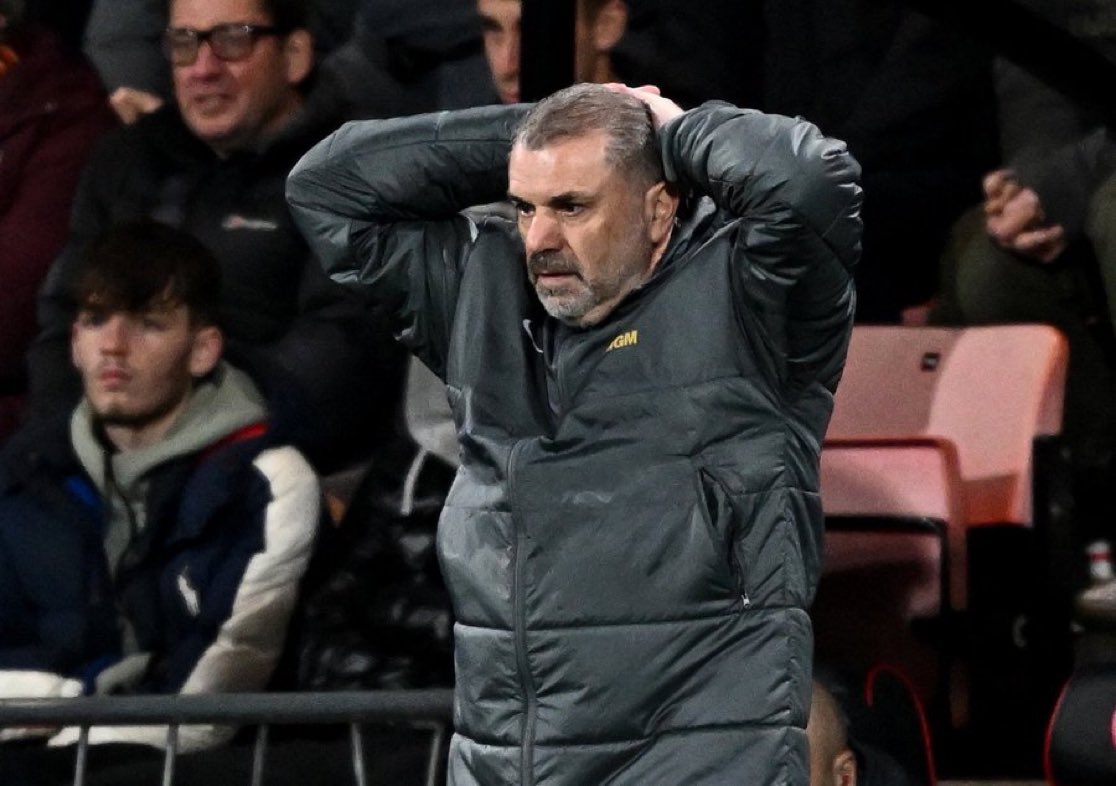Ange Postecoglou’s response to Tottenham Hotspur’s devastating home collapse against fierce rivals Chelsea revealed a lot about his direct yet embattled approach.
The Australian manager appeared visibly disheartened following yet another disappointing loss. Tottenham started strong, taking a 2-0 lead within 13 minutes, but fell apart in the second half, conceding four goals.
Two of these came from unnecessary fouls inside their own penalty area, allowing Chelsea to leave North London with a 4-3 victory and all three points.
Questions are now being raised about Postecoglou’s position and whether he is feeling the pressure following recent clashes with fans. While the manager’s seat may be getting warmer, Postecoglou has arguably done enough to earn some leniency from chairman Daniel Levy.
Despite the growing scrutiny, his post-match comments shed light on the challenges the team faces and the areas needing improvement.
Postecoglou acknowledged the pain of the defeat, describing it as a “sore one” and pointing out how events early in the game disrupted their rhythm. Tottenham started brightly, but Cristian Romero’s early exit due to injury proved to be a turning point.
The manager admitted the team struggled to maintain discipline, particularly in the defensive third, where they conceded two penalties that could have been avoided.
Reflecting on the game, Postecoglou highlighted the team’s initial momentum and moments where they could have secured a crucial third goal. However, the second half saw Tottenham lose control, with Chelsea capitalizing on defensive errors and key disruptions in the Spurs lineup.
The Australian manager expressed frustration at the lack of discipline, emphasizing the importance of maintaining composure, especially against strong opponents capable of exploiting lapses in concentration.
Romero’s injury, which occurred within the first 20 minutes, left a significant void in Tottenham’s defense. Postecoglou confirmed the Argentine defender felt discomfort in his quad, forcing an early substitution.
Losing such a pivotal player so early disrupted Tottenham’s defensive structure and added to their struggles. The manager also hinted at ongoing injury concerns within the squad, noting Ben Davies’ condition as another setback. These challenges have further complicated an already difficult period for Spurs.
When asked if the collapse against Chelsea bore similarities to their midweek loss, Postecoglou firmly rejected the comparison. He stated that while Tottenham failed to perform in the earlier game, their performance against Chelsea showcased moments of quality.
He praised his team’s attacking play, particularly in the opening stages, but acknowledged that momentum shifted due to key moments that decided the outcome. For Postecoglou, these moments underscored the thin margins in games against top-tier opposition.
One recurring issue for Tottenham under Postecoglou has been their inconsistency in maintaining focus and discipline throughout matches.
The manager stressed the importance of recognizing the team’s strengths when they play their football but pointed out that lapses in discipline—such as the two penalties conceded—can prove costly. For a team aiming to compete with the league’s best, these errors need to be addressed to avoid further setbacks.
Looking ahead, Postecoglou expressed hope that Romero’s injury is not severe while acknowledging the need for reinforcements if the squad remains depleted by January.
He admitted that the team’s thin roster has contributed to their struggles, and the possibility of adding depth during the winter transfer window could provide much-needed support.
The manager’s comments suggest that while he remains focused on finding solutions within the current squad, he recognizes the limitations that injuries and squad depth have imposed on Tottenham’s progress.
Despite the mounting challenges, Postecoglou’s direct approach and willingness to address issues head-on reflect his determination to steer Tottenham through this difficult period.
However, the clock is ticking, and results will ultimately determine whether he retains the trust of both the board and the fanbase. For now, the focus remains on addressing the team’s inconsistencies, improving defensive discipline, and finding ways to adapt to the challenges posed by injuries.
The loss to Chelsea was a stark reminder of the work that remains for Postecoglou and his team. While there are clear signs of potential in their attacking play, the defensive lapses and inability to manage critical moments continue to hold them back.
For Tottenham, the path forward involves not only addressing immediate concerns but also building a foundation for sustained success under Postecoglou’s leadership.
The manager’s ability to navigate these challenges will determine whether he can restore confidence and lead the team to better outcomes in the weeks and months ahead.

